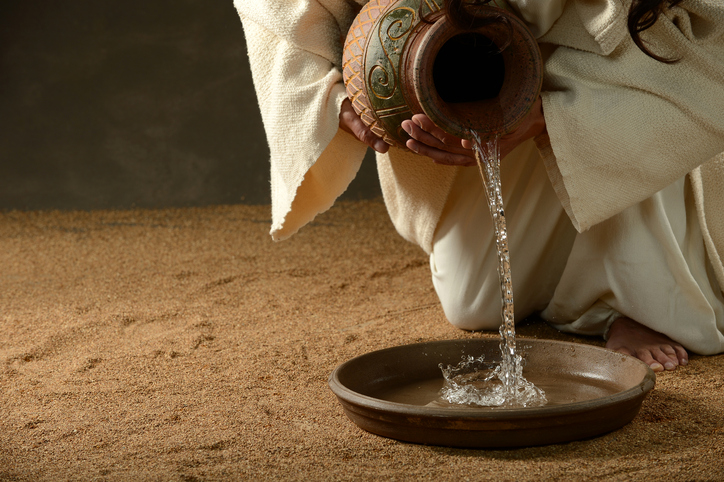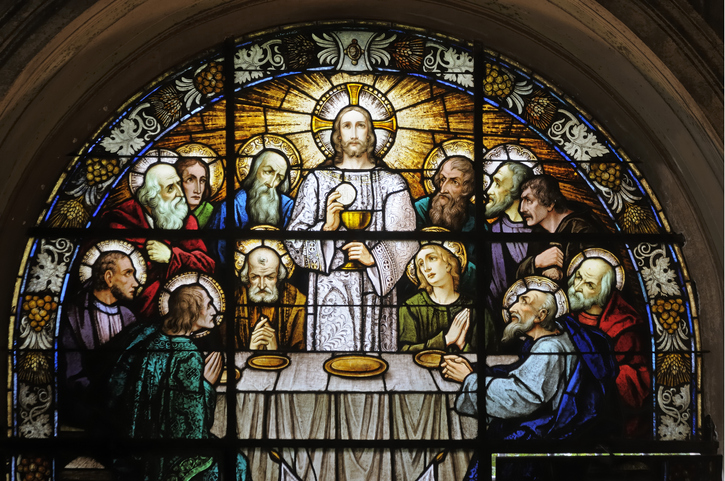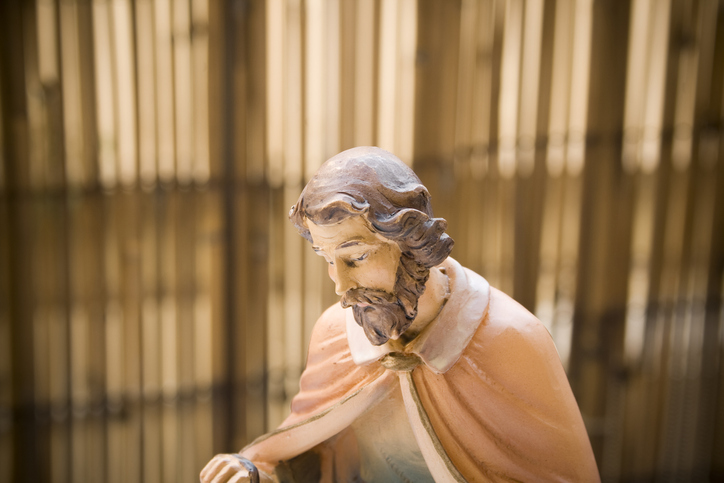I might as well start with an admission: I love English muffins. Give me a toasted English muffin, and I’m happy to put anything on it—honey, cheese, peanut butter, jam, avocado… I’m just happy. English muffins are generally both plentiful and inexpensive, and for years I’ve never given much thought to them as a preference. They just were.
And then the pandemic struck, and the bread aisle at my local supermarket was suddenly denuded; a swarm of locusts couldn’t have done a better job of wiping it out. A couple of packets of hot dog rolls and some suspicious-looking flatbreads were all that were left. I went home with other groceries, of course. I wasn’t close to starving. But I kept going to the refrigerator and reaching for those English muffins and feeling unsatisfied and even bereft when there were none.
Of course, it’s all just a matter of perspective, and if nothing else the pandemic has brought that understanding home to us, too. I might not have my food of choice; but I have enough food. In my community, in your community, throughout the world, there are people who don’t have enough. Children who will go to sleep tonight hungry. Beside that, my preference for English muffins seems a small, entitled thing.
But I think it’s significant that it’s bread I’m missing, the lack of bread that makes my life so incomplete. I was already thinking about that when I opened my missal to today’s Gospel reading, and there it was again. Bread.
Bread is such a basic part of life. Bread represents the most basic of human needs. It’s a fundamental part of the diets of nearly every world culture. It provides nourishment, sustenance, and vitality. “Give us this day our daily bread,” we are taught to pray. Why? Because we need it.
Perhaps because of its ubiquity, bread symbolizes our need of sustenance, and so it’s not surprising to find it featuring regularly in Scripture. There are at least seven words referencing bread in the Hebrew-language version of the Old Testament, and three Greek words referring to it in the New Testament. Mentioned at least 492 times in the original languages of the Bible, it is easy to see how important this food was to everyday life.
From the very beginning, God has longed to feed us, care for us, and lift us up to eternal life with him, and he has constantly been at work to fulfill his longing.
Food, and eating food, especially bread, is a theme the New Testament returns to again and again. When Jesus says in today’s Gospel, “I am the bread of life,” it isn’t just a figure of speech. Jesus meant the words literally. At the Last Supper the night before he died, he held bread in his hands and said to his friends, “This is my body that is for you. Do this in remembrance of me” (1 Corinthians 11:24). When Jesus called himself the bread of life, his listeners no doubt thought of Moses. Through Moses, God sent down manna, bread from heaven that fed the chosen people for 40 years before they reached the promised land. Jesus explained, “Your ancestors ate the manna in the desert, but they died; this is the bread that comes down from heaven so that one may eat it and not die” (John 6:49-51).
In feeding hungry people, Jesus recognized the emptiness inside them: not just the emptiness in their bodies, but in their hearts and souls and spirits. And today, more than two thousand years later, we’re still starving.
One of the many things about Christianity I value is its incarnational aspect. Not only did God become human, he blessed the world through his association with earthly things. He performed his first miracle with wine. He wrote words in the dirt. And he valued bread, the work of human hands. When one day Jesus was teaching in a remote and solitary place and it got late, he multiplied five small loaves of bread into enough to feed five thousand hungry people. Again and again we see him coming back to bread.
In an interview with a French Catholic publication, Mother Teresa once said, “The spiritual poverty of the western world is much greater than the physical poverty of our people. You, in the west, have millions of people who suffer such terrible loneliness and emptiness. They feel unloved and unwanted. These people are not hungry in the physical sense, but they are in another way. They know they need something more than money, yet they don’t know what it is. What they are missing, really, is a living relationship with God.”
So our souls need him. He is the very food our souls crave. Anyone apart from Christ remains famished and dying. Anything else is just empty calories—junk food. He is the answer to end all our spiritual cravings. He is enough.
I keep coming back to that concept in my thoughts and reflections and prayers, the concept of enough. I used to think of it as not particularly positive. Enough doesn’t sound like what I want; I want more! I want perfection! I want exactly what I want, when I want it! Yet more and more in these days of scarcity and fear, of uncertainty and pain, I’ve come to value the concept of “enough.” Enough isn’t second-best. It isn’t oh-well-better-luck-next-time. It is enough.
We don’t have the world we want. We have lost things we thought we couldn’t live without—jobs, a sense of security, friends and loved ones. We are using food banks and soup kitchens and the kindness of strangers for the bread our bodies need. It’s not perfect. It’s not what we’re accustomed to. But it’s enough.
And one place where we really do have enough is in our invitation to the Banquet of the Lamb, in sharing the true bread of life. We are all invited to be taught, to be fed, and to be one with him, and because of this privilege, we have to be sensitized to the needs of others. At the meals Jesus hosted, there were no guest lists. None was necessary, because everyone was invited. In our sharing of the bread of life, we are called to follow his lead in welcoming everyone to his table—and to our own.
Contact the author






















